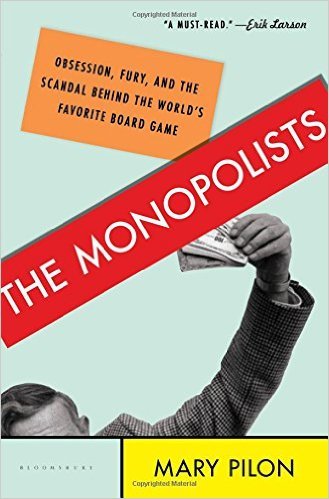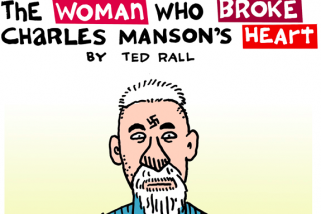BreakingModern — You’ll never look at Mr. Monopoly the same way again. You’d never guess it, but behind the top hat, big smile and gleaming white mustache lie a dark history of greed and thievery. I always knew something was fishy.

Despite its promise of free parking and a community chest, Monopoly is a game with dark past. The team that produced the Oscar-winning film Little Miss Sunshine is working on a movie to expose this history.
The film that is going to spoil our idealistic view of the game will be based upon author Mary Pilon’s book, The Monopolists: Obsession, Fury, and the Scandal Behind the World’s Favorite Board Game.

Pilon reveals that the Parker Brothers, those credited with creating the game, weren’t the first to come up with such an idea. Rather, in 1903, an anti-capitalist woman named Elizabeth Magie, who would undoubtedly #FeelTheBern if she were alive today, made a game called “The Landlord’s Game,” intended to criticize Franklin Roosevelt’s imperialistic tendencies and inequalities at home.
In the years leading up to Magie’s creation of the game, the U.S. had received control over the Philippines, Puerto Rico and Guam from Spain, annexed Hawaii and put a protectorate on Cuba, all violating the previous foreign policy precedent of non-interference.
Magie supported politician Henry George, who as part of the Progressive Era movement against trusts, corporations and poverty, garnered support from socialists (don’t confuse them with communists!). Jen Doll at the New Republic described George as “an outspoken and influential tax reformer who advocated policies that would keep more money in the hands of the poor and working class.”

For Magie, the game she patented was a fairly simple means of social criticism. Dominating land and creating monopolies like the trusts did stifled competition, leaving all others in the dust.
According to Doll, Magie’s game was “eerily” similar to the game of Monopoly we all know and love today. It had “deeds, railroads, properties, and the words ‘Go to Jail.’ Landing on certain squares means paying fees, a full trip around the board lets you collect fake cash and the player with the greatest riches in the end wins.”
So why didn’t Magie get the credit and massive amounts of royalties that she deserved? A man named Charles Darrow took advantage of a free copy of the game from a friend, had another “friend illustrated it (for free), and sold the reinvented product to a sinking Parker Brothers as his own (for $7,000 plus residuals), subsequently amassing a fortune.”
In 1935, Parker Brothers agreed to pay Magie $500 for a “revised patent,” but it was too late. The Monopoly brand was firmly associated with the game maker, not the radical reformer. Clearly, someone gave the Parker brothers a get-out-of-jail-free card.
For BMod, I’m Ben Leonard.
All Screenshots: BMod Staff







![Who’s Going to Get “Lucky” This NBA Season? [commentary]](../wp-content/uploads/2015/10/HEADER4-60x60.jpg)
![Pete Rose Continues to be Out of Step with Major League Baseball [commentary]](../wp-content/uploads/2015/10/HEADER2-60x60.png)

![Cooking Fever [review]](../wp-content/uploads/2015/11/HEADER1-321x214.png)
![Assassin’s Creed Syndicate [review]](../wp-content/uploads/2015/11/HEADER3-60x60.jpg)
![The Legend of Zelda: A Link to the Past [manga review]](../wp-content/uploads/2015/10/HEADER3-60x60.png)
![Madden NFL Mobile [review]](../wp-content/uploads/2015/09/header3-60x60.jpg)